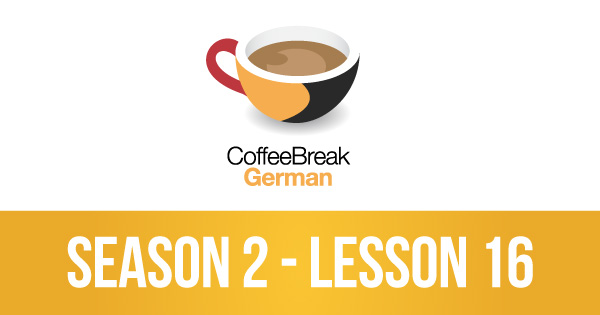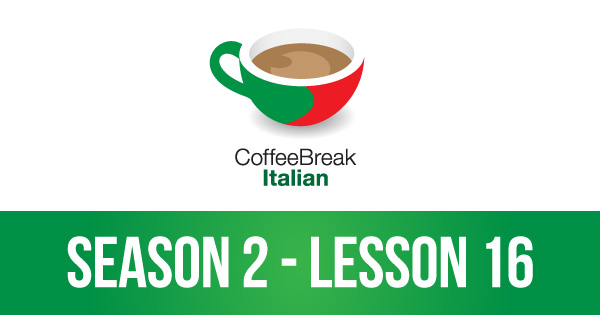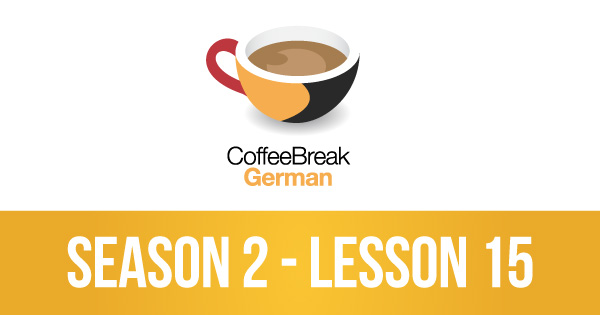In this lesson we’re looking further at the dative case and specifically at verbs which need the dative like geben, schicken, schenken, antworten and helfen. You’ll also be learning to use the dative forms of the personal pronouns.
Month: September 2017
CBC 1.20 | Zhǐnéng fù xiànjīn
This lesson marks the end of the first half of the Coffee Break Chinese Season 1 course, and we’re taking the opportunity to review much of the vocabulary and structures learned in the first 20 lessons through a series of conversations in different situations.
CBI 2.16 | Abbiamo imparato molto!
It’s time to think about the past. We’ve already seen examples of the Perfect Tense, one of the main Italian tenses used to talk about what happened in the past, but so far we’ve not learned exactly how to use it. In this lesson you’ll be learning to form the past participle of -are, -ere and -ire verbs and how you combine these with the verb avere to form the Perfect Tense.
CBC 1.19 | Qǐng gěi wǒ yì zhāng qù Guìlín de huǒchēpiào
In this lesson of Coffee Break Chinese you’ll be learning about train travel in China. You’ll learn to book your tickets in advance and request the particular type of ticket and seat you require. There’s also a cultural segment about travel in China.
CBG 2.15 | Mark fragt, ob Heidelberg schön ist
This lesson focuses on the topic of asking questions, both “open” questions using the W Fragewörter, and more closed questions which are more likely be answered by ja or nein. You’ll learn to ask questions using various words, all of which begin with the letter W, and you’ll also learn to use reported speech involving questions. Julia is back with another Kulturbeitrag in which she talks about celebrating birthdays in Germany.






